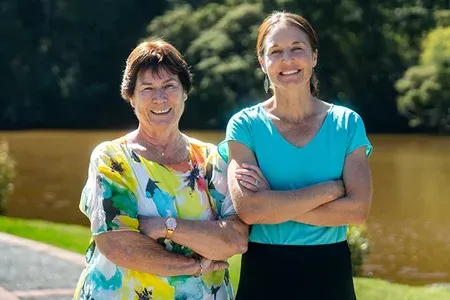MAS Foundation: Revealing the harm of how Kiwis drink with Health Coalition Aotearoa in collaboration with Helen Clark Foundation
By MAS Team
By MAS Team
MAS Foundation is MAS's philanthropic arm, and takes a Te Tiriti o Waitangi partnership-based approach to funding projects that address health equity issues in Aotearoa. MAS Foundation is committed to working alongside communities to help them find their own solutions.
In this series, we profile some organisations and initiatives MAS Foundation is supporting and find out how partnering with MAS Foundation helped them make an impact.
In early 2020, MAS Foundation partnered with Health Coalition Aotearoa to support research into the extent of alcohol harm in Aotearoa.
As a coordinating umbrella organisation, Health Coalition Aotearoa provides expert advice to inform policy and legislative change to address the impact of harmful products – tobacco, alcohol, unhealthy foods and beverages – to ensure greater health and equity.
In collaboration with the Helen Clark Foundation, a think-tank that aims to build a fairer and more sustainable Aotearoa, award-winning journalist Matt Shand was appointed as Health Equity Fellow, tasking him with finding and sharing data, insights, and stories on the real impact of alcohol in Aotearoa.
 Matt's career as a journalist has seen him come face-to-face with the harm caused by alcohol.
Matt's career as a journalist has seen him come face-to-face with the harm caused by alcohol.
"As a reporter, you're often at the coalface of tragedy. In many cases, this is covering the aftermath of alcohol, and it's quite distressing," he says.
As Health Equity Fellow, Matt is tasked with unearthing compelling data and insights that "might not have reached the eyes and ears of the public, and disseminating that out through various channels.
"There is excellent research being done by those at the frontline, and getting interesting datasets to the public helps in their work. I apply the principles of journalistic investigation and public interest to help get these messages out."
Matt says, "We definitely need to look at the way in which we, as a country, are drinking alcohol. "Our culture of binge drinking causes a lot of damage."
"The statistics show that Māori have a disproportionate chance of becoming what's called a hazardous drinker – someone who drinks in a way that harms themselves, and other people."
Auckland councillor Josephine Bartley has seen close up the violence and harm that alcohol causes, having worked with Police and joined the community patrols in her area of Maungakiekie-Tāmaki.
"If you look at communities that have a proliferation of off-licences, the're low-income and predominantly Pasifika and Māori, so the effects of alcohol are hitting us harder. People think it's normal to go buy bread, toilet paper, and a box of Cody's early in the morning."
Legislation around alcohol sales desperately needs to be reviewed, says Josephine. "The Sale and Supply of Alcohol Act is too focused on the business of selling alcohol and needs to be reviewed to consider how to protect communities by stopping new liquor stores opening up where there are already too many."

Matt believes changes like reducing bottle shop opening hours, limiting how many off-licences are allowed in each area, and regulating or removing alcohol advertising and sponsorships could have a significant impact.
"It's a start, but ultimately, we need policies to help drive a cultural shift. Removing alcohol from sports and reducing the opening hours of off-licences, are just two ways to denormalise the drinking culture."
Matt's research is now focused on junk food, and he's calling for the marketing and advertising of junk food to children to be limited.
Junk food advertising truly is the "wallpaper to children's lives", says Matt.
"It is on every street, on their devices, and even in children's rooms through sponsored advertising content. New Zealand currently has no laws that govern what can be advertised to children and instead relies on industry guidelines."
"Behind the scenes, we are working with experts to create web content, videos, and other means to promote these messages to the public to support our policy asks and wider goals."
MAS Foundation heads Dr Julie Wharewera-Mika (Tangata Whenua) and Mafi Funaki-Tahifote (Tangata Tiriti) believe Health Coalition Aotearoa's work on understanding the extent of alcohol harm in Māori and Pasifika communities is a significant step towards reducing it.
"The collective contribution of Health Coalition Aotearoa whose membership includes NGOs, healthcare and academic sectors, working in collaboration with Helen Clark Foundation reflects our value of whiria te tangata – or weaving people together. "We value the strength of collaboration and partnership in addressing health and wellbeing equity", says Julie.
Mafi believes "the approach to effect change at systems level aligns closely with the approach of MAS Foundation. It removes the burden from individuals and supports an enabling and empowering systems for kāinga thrive".

The MAS Foundation delivered its first round of funding in April, donating almost $350,000 to 10 not-for-profits focused on helping communities fight COVID-19. One recipient, a Facebook Messenger chatbot, helped ease pressure on the healthcare system.

With decades of medical experience in various fields, Kate Baddock has a wealth of knowledge to share with trainee doctors to help them excel in their careers.

Member engagement and clarity of purpose were key factors in the journey to enable MAS to make a stronger contribution to the health of Aotearoa New Zealand.